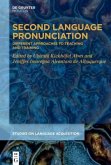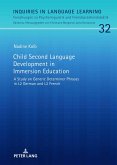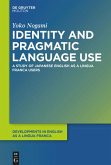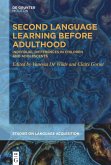In the field of second language (L2) acquisition, the number of studies focusing on L2 pronunciation instruction and perceptual/production training has increased as new classroom methodologies have been proposed and new goals for L2 pronunciation have been set. This book brings together different approaches to L2 pronunciation research in the classroom or in the language laboratory.
13 chapters, written by well-known researchers focusing on a variety of first and target languages, are divided into four parts:
Pronunciation development and intelligibility: implications for teaching and training studies; L2 pronunciation teaching; L2 pronunciation training: implications for the classroom; and Pronunciation in the laboratory: High Variability Phonetic Training.
Intended for researchers in the fields of second language acquisition, phonetics, phonology, psycholinguistics, speech therapies, speech technology, as well as second language teaching, this book not only summarizes the current research questions on L2 pronunciation teaching and training, but also predicts future scenarios for both researchers and practitioners in the field.
13 chapters, written by well-known researchers focusing on a variety of first and target languages, are divided into four parts:
Pronunciation development and intelligibility: implications for teaching and training studies; L2 pronunciation teaching; L2 pronunciation training: implications for the classroom; and Pronunciation in the laboratory: High Variability Phonetic Training.
Intended for researchers in the fields of second language acquisition, phonetics, phonology, psycholinguistics, speech therapies, speech technology, as well as second language teaching, this book not only summarizes the current research questions on L2 pronunciation teaching and training, but also predicts future scenarios for both researchers and practitioners in the field.








